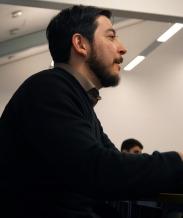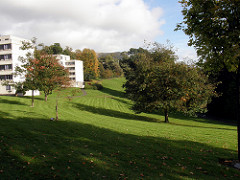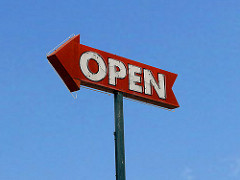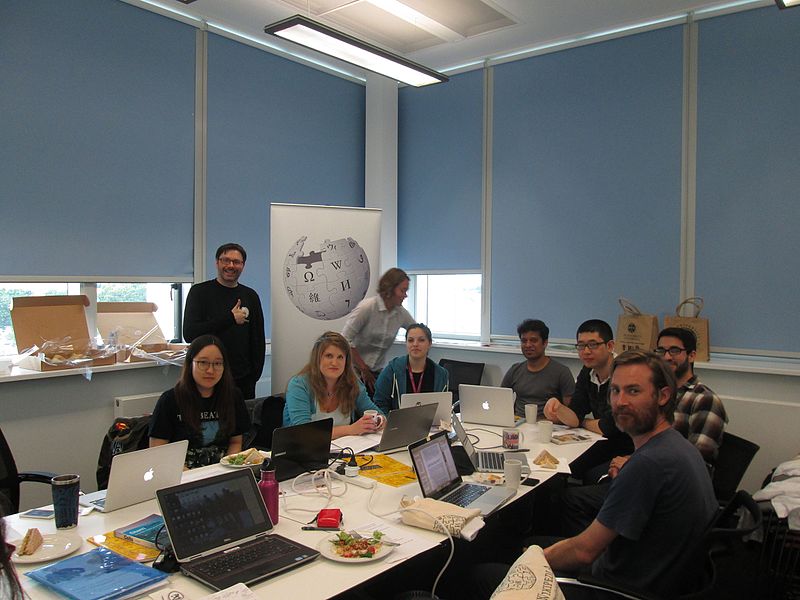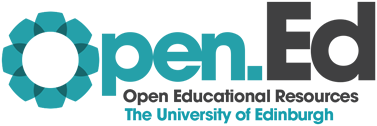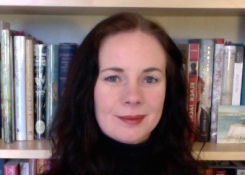Greg is responsible for delivery of Digital Media and Culture, a hands-on interdisciplinary module studied by undergraduate students across the Faculty. Digital Media and Culture explores “contemporary issues relating to online life” including communities, sharing information online, connectivity and the relation between self and online identity. The module also explores the “familiar” and the “non-familiar” online in a range of ways, including utilising the open platform Wikibooks where students collaborate to co-create online open books (e.g. Digital Media and Culture Yearbook 2014.
“…[The module is] a way to get the students to engage with how online systems, why they use them in particular ways and why there are certain things that are less familiar than others. And that’s a really good way of getting students to think about things very reflexively and also to get the students to engage with their own everyday practices, so testing assumptions and thinking through why we assume certain things to be the way there are...”
Wikibooks: “a way of thinking about actionable knowledge”
Greg previously experimented with using “the wild space” of Wikipedia in courses during his time at The University of Hull. However, this and the fact that Wikipedia is an encyclopaedia meant it wasn’t really suited to the kind of collaborative, creative group activities envisaged for Digital Media and Culture. Wikibooks in contrast “…is much more of a closed system … that can be used to really explore ideas …” As Greg described it:
Greg has used Wikibooks to facilitate the co-creation of content for the past 3 years. Each student is graded individually but works with others to complete the assigned project. Greg assigns each student to a group of around 4-5 persons. Each group is then responsible for generating a particular chapter of a book (for example Perspectives in Digital Cultures) Groups work together to produce material and comment/critique on others work. Given the size of cohorts it is often the case that there are multiple groups of students working on particular sections of a book – part of the challenge for students is to navigate and negotiate working with others and the “different voices” that arise during the of co-creation of content. As well as improving students’ understanding of specific topics, dealing with challenges such as these help to build skills needed in the workplace and provide ample material for reflecting on one’s own practice.“With Wikibooks there is a bit of leeway in terms of thinking about critical engagement and thinking about original ideas that can be explored within a theme so in that sense it’s not like an encyclopaedia, it’s like a book. And that to me was fascinating … it really lends itself to more traditional modes of thinking and learning in Arts and Humanities, particularly in relation to building an argument, critical engagement with ideas and debates and also putting one’s own stamp, one’s own thoughts on a particular subject in order to develop one’s own knowledge of it.
And of course within the open aspect of that platform, you’re able to share that, and you’re able to discuss those ideas. And those things aren’t fixed, they’re living, they’re still working, they’re still improving, through discussion.”
“It’s a very marmite thing”
“…increasingly we’re seeing non-standard types of assessment, increasingly we’re seeing a move towards collaborative work, particularly in creative industries courses and Arts and Humanities in general. There’s a real sea change that’s going on at the minute in higher education…”
Whilst colleagues were intrigued and interested in Greg using familiar social media tools and platforms such as Wikipedia as part of a course, students were described as either loving or hating this type of project format (“it’s a very marmite thing”). This, Greg explained, was not only because of the move from a traditional lecture/seminar structure to computer lab based work to facilitate the module but also because using everyday social media tools and platforms as part of a course involves turning them into “an object of analysis” instead of something that students only enjoy using informally. In addition:
“… having to engage with that community based learning; it can be quite divisive. One it’s very different to traditional modes of learning in higher education … But also I think students because they are working with other people, because they have to think about and negotiate relationships and working relationships, it largely depends on the chemistry of groups involved…”
In order to help students engage with this type of activity, Greg emphasises skills that students will gain through this type of activity: improvement to ideas and material through collaboration (peer-review) and students helping each other learn (peer-assisted learning). In addition, the “marmite” reactions that this type of activity engender also enable students to reflect and “think productively” about why they are responding in this way.
Get “skilled up”: Advice for using Open Knowledge Platforms
“…You are stepping outside of a sheltered institution, like an HE institution and into the wilder environment of Wikipedia. They are tolerant but only up to a point. The community has a job to do and you have to fully acknowledge that they are giving up their time to do that.”
Greg had the following advice for anyone thinking about utilising open knowledge platforms for teaching:
- “Try to ensure you’re skilled up in the mechanics” of the platform you want to use. There are community help pages or forums where you can ask questions (for example Wikimedia Commons Village Pump.
- Think about how to facilitate the collaborative nature of the activity (e.g. if students are going to be helping each other learn, how will you enable this take place);
- Acknowledge that you are using an open platform and that learning is not taking place in “a sheltered institution” but on an “… open and publically viewable [platform] and that [it] is another thing to negotiate.” Openness is therefore “part of the learning process” and you will need to consider what the “implications” are of any particular types of negative behaviour that might occur during an activity (e.g. trolling). In addition, what are the expectations of a particular platform’s community? You need to be upfront with students about this and be clear about likely consequences.
The Importance of Openness
I asked Greg what ‘openness’ meant to him. In the following interview excerpt Greg highlights some of the most important consequences of being more transparent and public in one’s own practice. In particular he highlights how collaboration requires one to take adopt a different attitude when sharing and developing material or ideas:
“… what’s really interesting; I ran a research symposium about three years ago which involved various members of the Wikipedia community and the Wikimedia Foundation but also some open educationalists, the open knowledge foundation had representation there as well.
One of the things that came out of the conversation there, which was really interesting, was the distinction that needs to be made conceptually and then in practice, between what we might call ‘free’ what we might call ‘public’ and what we might call ‘open’ and this is a conceptual distinction that is really hard to maintain in practice because people often use those terms interchangeably to mean the same thing. For me I think that openness involves a couple of things.
One and I think the most important is that it has to involve open mindedness. So you have to be open to the fact that you don’t have all of the answers, and that then leads to the practice of open education because the idea that you don’t have all of the answers and other people might have some of the answers to the things that you’re looking for. But also that you have some answers to questions that other people are asking. It lends itself to the notion of collaboration and the notion that knowledge isn’t actually from one place, and it isn’t fixed, it’s moving, it’s an ongoing project. And that, I think, is the key to openness, is openmindedness and a willingness to engage.
What that means actually is that it involves quite a lot of trust, it involves quite a lot of vulnerability and the willingness to make oneself vulnerable to those processes. That can be quite a challenge. And that I think is another reason why some students find it quite difficult to engage with the process. It’s because you are leaving yourself open to criticism essentially or, if you like, a process in which your contribution is critiqued, reworked and fed back to you in ways that might be unexpected and ways that might challenge you. So that’s what openness is all about for me. And open education really speaks to that process of opening oneself up to that collaborative, ongoing work.”
Where next? The Potential of Open
Although Greg currently uses Wikibooks within a Higher Education content, he is interested in experimenting further and “…explor[ing] some of the more emergent aspects of learning.” How does using open platforms such as Wikibooks or other platforms help “…people to think about space, place and identity in a collaborative environment”? In addition, how are Wikibooks projects more widely being reused? For Greg “…there is a lot of potential” for open to help “inform real world projects” and be used in non-academic contexts.
Find Out More
Communications, Media and Culture blog at The University of Stirling
Photo Credits
Greg Singh (used with permission); Stirling University Campus (by Yoav Sion, licensed CC BY-NC-ND); Marmite (by Cliff James, licensed CC BY-SA 2.0) and Open (by Chuck Coker and licensed CC BY-ND 2.0)
Originally published on 26 January 2017 - 4:53pm by Beck Pitt
